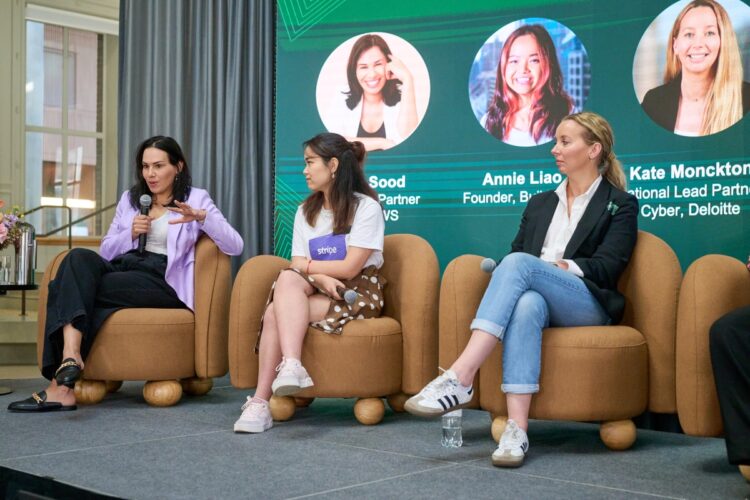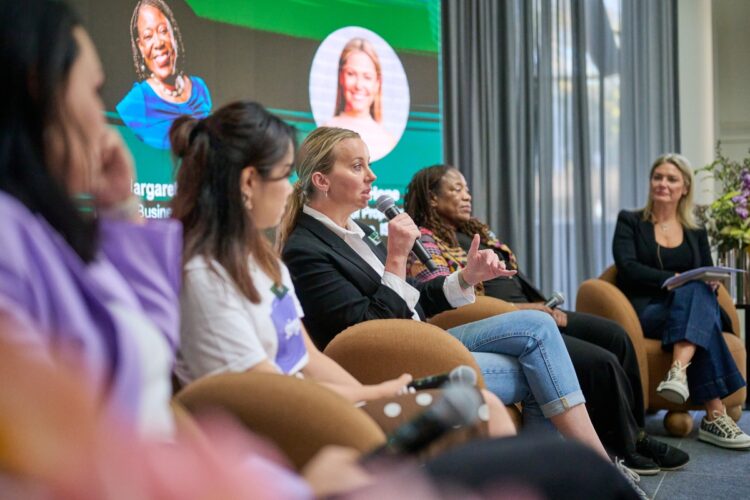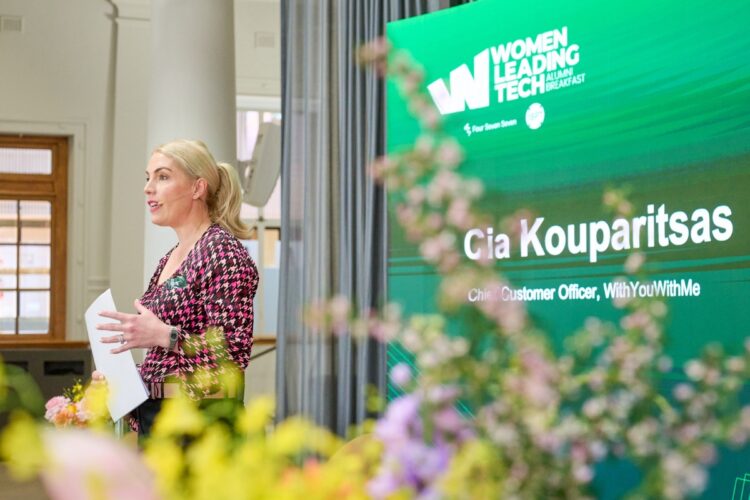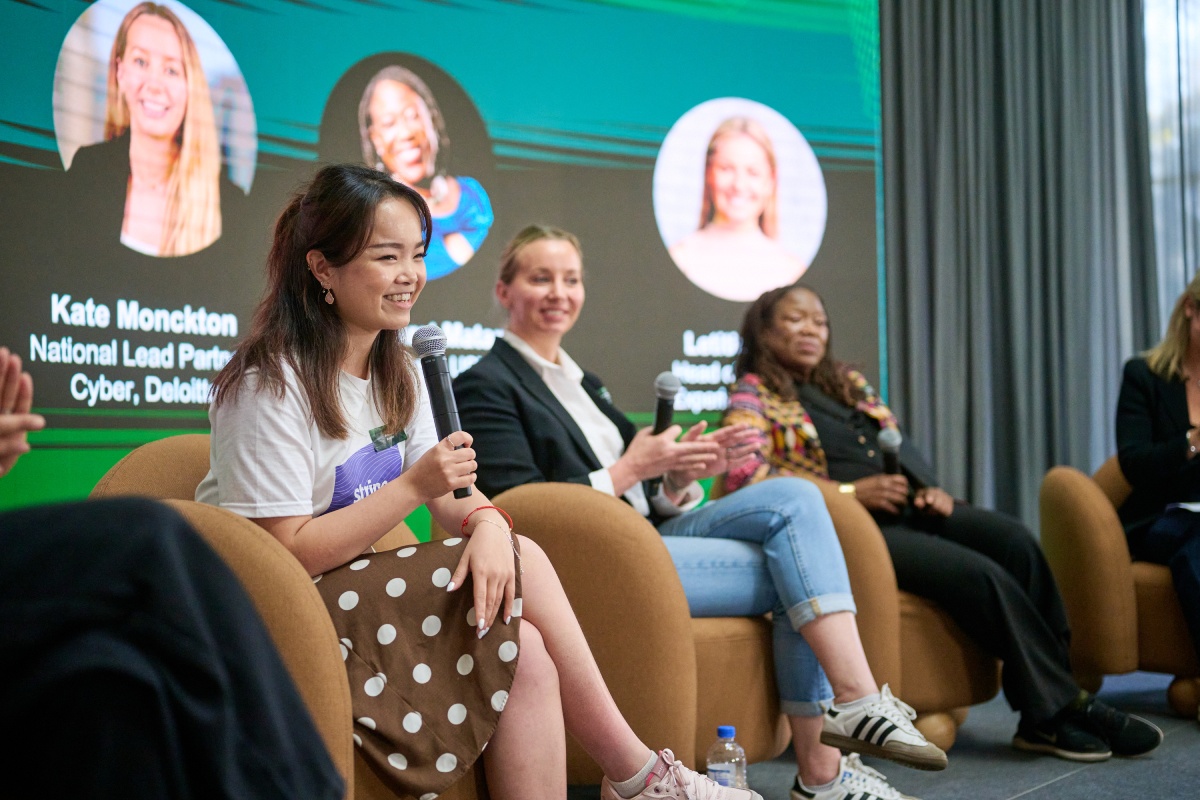Australia’s AI skills gap has been labelled “frightening” by a panel of female tech leaders as we face serious gender inequality issues as a society that will only reinforce biases currently manifesting in AI.
Investment in the technology — best known through consumer-facing tools such as Microsoft-backed OpenAI’s ChatGPT and Google’s Gemini — is set to reach mammoth numbers in the coming years.
However, despite the clamour and excitement around the tools, Anita Sood, Asia Scale Partner at AWS, told the Women Leading Tech Alumni Breakfast, presented by 477 on Pitt Street by ISPT, in Sydney yesterday that the country was seriously lacking in the skills necessary to keep up with the technology.
“AWS has invested $9.1 billion in the last 10 years in infrastructure jobs and between now and 2027, there’s going to be another $13.2 billion. That’s just in Australia. That’s just one slice of the industry.

“We’re on this innovation pathway with applications, infrastructure and amazing hardware fueling this gen AI world. But we need the skills to match. That’s the gap here and that’s what is frightening. I’ve got a four-year-old, how’s she going to have the skills to use this tech? She can just talk to a program and create this complex coding scenario and that’s a whole new world.”
Sood added that AWS has trained some 400,000 people with AI and cloud skills across Australia and New Zealand. The panel was moderated by Letitia Hope, head of property experience at ISPT. It was held in the stunning Collider room at Sydney’s emerging tech hub, 477 on Pitt Street by ISPT.
While it is doubtless true that AI will give businesses the technology to grow — fellow panellists Dr Margaret Matanda co-founder of Musa Ventures and professor of business at the University of Sydney and Annie Liao, founder of AI innovation hub Build Club, both said that it could have a transformative effect for companies — the ingrained racism and misogyny in our society needs to be overcome for the tech to be safe.
“It’s only as good as the data that gets put in,” said Kate Monckton, cyber partner at Deloitte and Cyber Security category winner at this year’s Women Leading Tech Awards.

“If you put crap stuff in there, you get crap stuff out… Our society is misogynistic, racist, is not representative of diverse perspectives. What you get out can be highly biased. This isn’t news, it’s been happening for a while.
“Australia as a society, we fall behind in some areas, especially with gender norms. Here’s a bit of background as to why this is so important. One in three Australian men think that women make up claims of rape when in fact five per cent of rape claims are found to be fabricated. One in four Australians this year think that children are disadvantaged when the mother is working,” added Monckton.
“One in five Australians — regardless of gender — believe that it is better when a man is in charge, in general, in the home or in business.”
Matanda, whose daughter Tandadzo won the Innovator category at this year’s Women Leading Tech Awards, added that while there are significant problems in Australia — particularly around ingrained misogyny in training AI models — the problem is truly global, with local nuances.
“AI has been trained more or less on the white, middle-class elite,” she explained.
This will, and is already, having serious impacts on the non-white communities and non-English speaking countries around the world as AI becomes an increasingly important tool for medical research and beyond. Quite where it finishes is not yet clear.
“All the data we have is very biased and we’re using that data to train models. When we say they are perfect, they are not. The data is not there. I meet with doctors in Africa who live in areas that are not in the data. Most of Africa is not involved in the data at all,” Matanda said.
However, while generative AI does present grave dangers, on an individual level, the paradigm-shifting nature of the technology offers opportunities for women to become more involved in the technology sector.
Liao explained that the market was experiencing “rapid growth” in demand for AI engineer jobs.
“It could be anyone from any background, whether they’re software engineers, data analysts, even non-technical people. All they need is the skills to be able to leverage a large language model (LLM) with code or even no-code tools” she explained.
In fact, Cia Kouparitsas, chief customer officer at WithYouWithMe and winner of the Champion of Change explained that while it used to be true that technical staff learnt how to use one coding language or piece of technology that would last them nearly a whole career, generative AI would mean that tech skills will go past their sell-by in just five years. Much of this is down to no-code applications, too.

“I can guarantee that these changes are across every single workforce. There is going to be change. That makes a lot of people feel anxious, nervous and scared because they don’t know what that change is going to look like. The unknown can be scary,” she said.
While that feeling of change can be daunting, there was a distinct feeling of camaraderie and solidarity in the room. During the Q&A segment following the panel, guests swapped stories of injustice, inequality and abuse that were enabled and abetted — inadvertently — by technology.
What is clear, however, is that progress towards a better future is not linear. Without communities like the Women Leading Tech Alumni, there is no guarantee that our future will be better, either.











